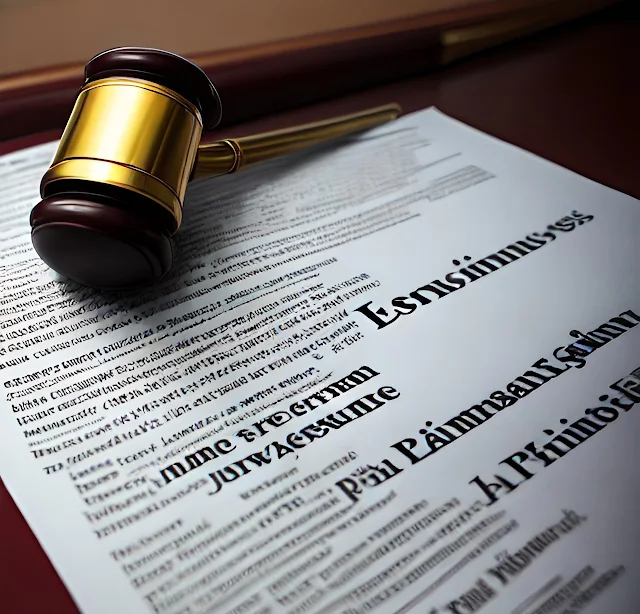Introduction
Personal injury lawyers play a crucial role in seeking justice and compensation for individuals who have suffered harm due to someone else's negligence. However, the legal landscape is not without its challenges. In this article, we will explore the ten most difficult problems that personal injury lawyers commonly face. From complex legal issues to emotional complexities, we'll examine how these professionals navigate the obstacles with expertise and tenacity.
What Problems Do Personal Injury Lawyers Face? 10 of the Most Difficult
1. Dealing with Insurance Companies: An Uphill Battle
Personal injury lawyers often find themselves in an uphill battle when dealing with insurance companies. These companies prioritize their profits and may attempt to minimize or deny valid claims.
2. Establishing Liability: The Burden of Proof
Establishing liability is a fundamental aspect of any personal injury case. Lawyers must gather evidence, interview witnesses, and reconstruct events to prove the defendant's responsibility for the injuries.
3. Calculating Damages: A Complex Endeavor
Quantifying the damages suffered by the victim is a complex endeavor. It involves assessing medical expenses, lost wages, emotional distress, and future implications of the injury.
4. Handling Medical Evidence: Unraveling the Complexity
Understanding and presenting medical evidence can be challenging for personal injury lawyers. They must decipher intricate medical records and work with experts to establish a clear link between the injury and the incident.
5. Navigating Comparative Negligence: Shared Blame Scenarios
In cases where multiple parties share the blame, personal injury lawyers must navigate the complexities of comparative negligence laws. LSI Keywords: shared fault, contributory negligence, partial liability.
6. Statute of Limitations: Time Constraints and Pressures
Lawyers face the pressure of adhering to the statute of limitations, which imposes a time limit on filing a lawsuit after the injury occurs. Missing this deadline can severely impact the case's viability. LSI Keywords: legal deadlines, time-sensitive cases, filing constraints.
7. Balancing Emotional Involvement: Remaining Objective
Personal injury cases often involve clients who have suffered immense physical and emotional trauma. Lawyers must strike a balance between empathy and objectivity to provide the best representation. LSI Keywords: emotional support, client communication, professional detachment.
8. Managing High Caseloads: Time Management Skills
Personal injury lawyers frequently handle multiple cases simultaneously, leading to high caseloads. Efficient time management is crucial to ensure each client receives the attention they deserve.
9. Negotiating Settlements: Seeking Fair Resolutions
Negotiating settlements with opposing counsel can be intricate. Lawyers must pursue fair compensation while avoiding unnecessarily protracted legal battles.
10. Adapting to Legal Changes: Staying Current
The legal landscape is ever-changing, with new precedents and laws constantly emerging. Personal injury lawyers must stay informed and adapt their strategies to remain effective advocates for their clients.
FAQs
1. What should I do if an insurance company denies my claim?
If your insurance claim is denied, you have the right to appeal the decision. Consult with an experienced personal injury lawyer to assess your case and explore further legal options.
2. How long do I have to file a personal injury lawsuit?
The statute of limitations varies by jurisdiction and the type of injury. It's essential to consult a lawyer promptly after the incident to ensure you do not miss the filing deadline.
3. Can I handle a personal injury claim without a lawyer?
While it's possible to handle a personal injury claim without a lawyer, it's not advisable. An experienced attorney can provide invaluable guidance, improve your chances of fair compensation, and protect your rights.
4. How much compensation can I receive for my injuries?
The amount of compensation depends on various factors, including the severity of the injuries, medical expenses, lost wages, and emotional distress. An attorney can help you assess the potential value of your claim.
5. How long does a personal injury case typically take to resolve?
The duration of a personal injury case varies based on its complexity, the willingness of both parties to negotiate, and the court's caseload. Some cases settle quickly, while others may take months or even years to resolve.
6. What are the advantages of settling a personal injury case out of court?
Settling a case out of court can save time, money, and emotional stress. It allows both parties to reach a resolution without the uncertainties of a trial.
Conclusion
Personal injury lawyers face an array of challenges in their quest for justice on behalf of their clients. From battling insurance companies to navigating complex legalities, their dedication and expertise shine through. By understanding the difficulties they encounter, we gain a deeper appreciation for the crucial role these professionals play in safeguarding the rights of those who have suffered harm due to negligence.

Comments
Post a Comment